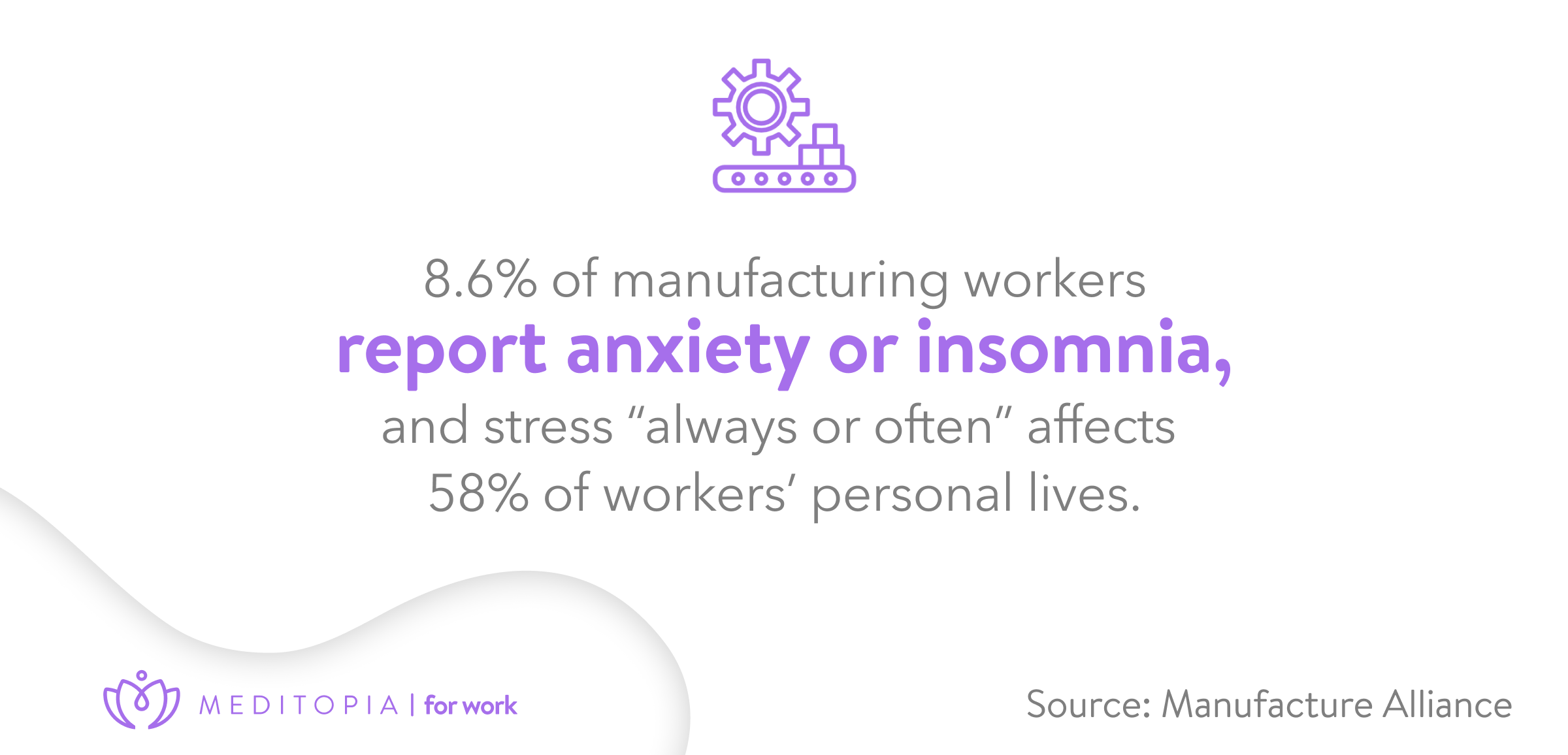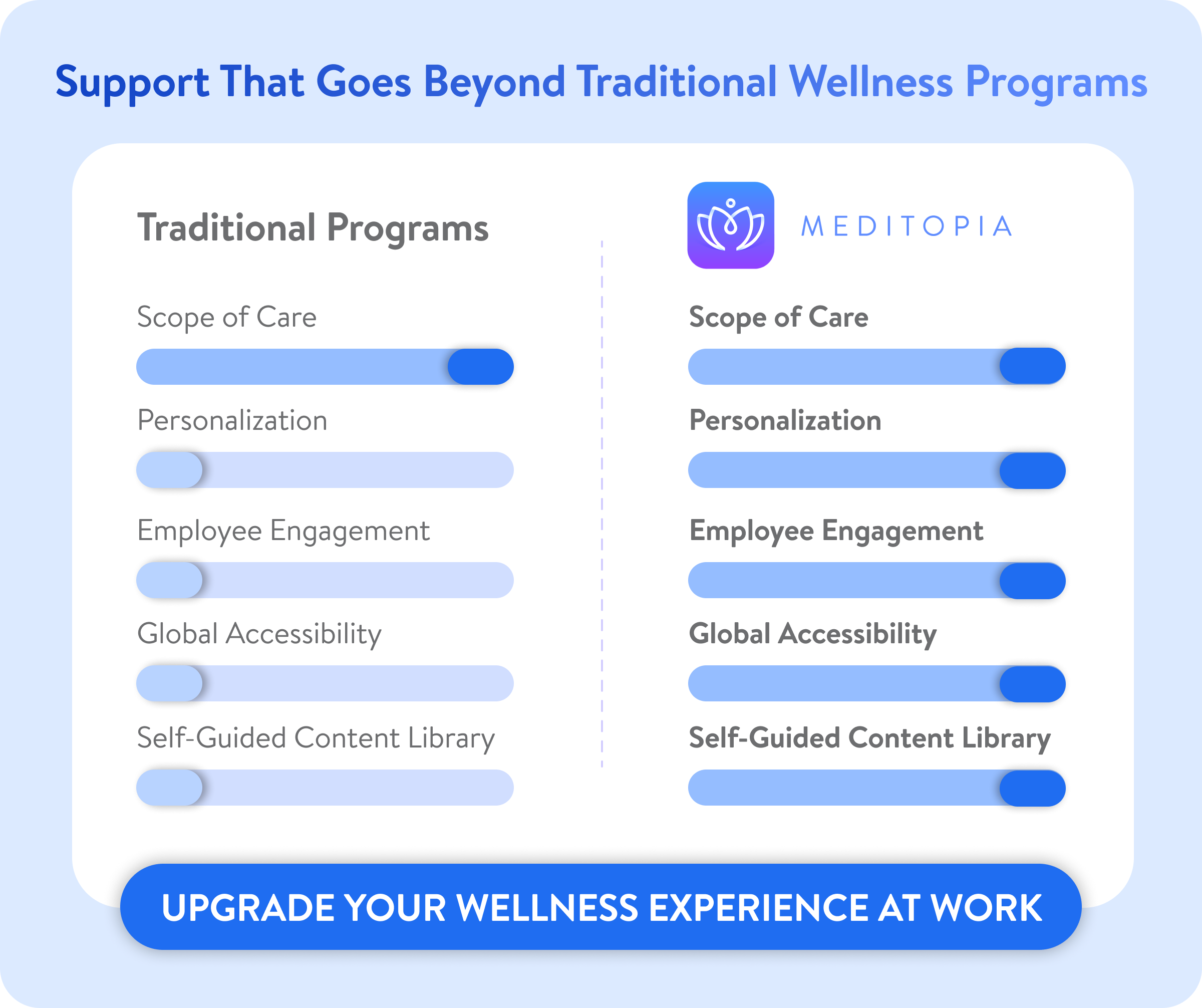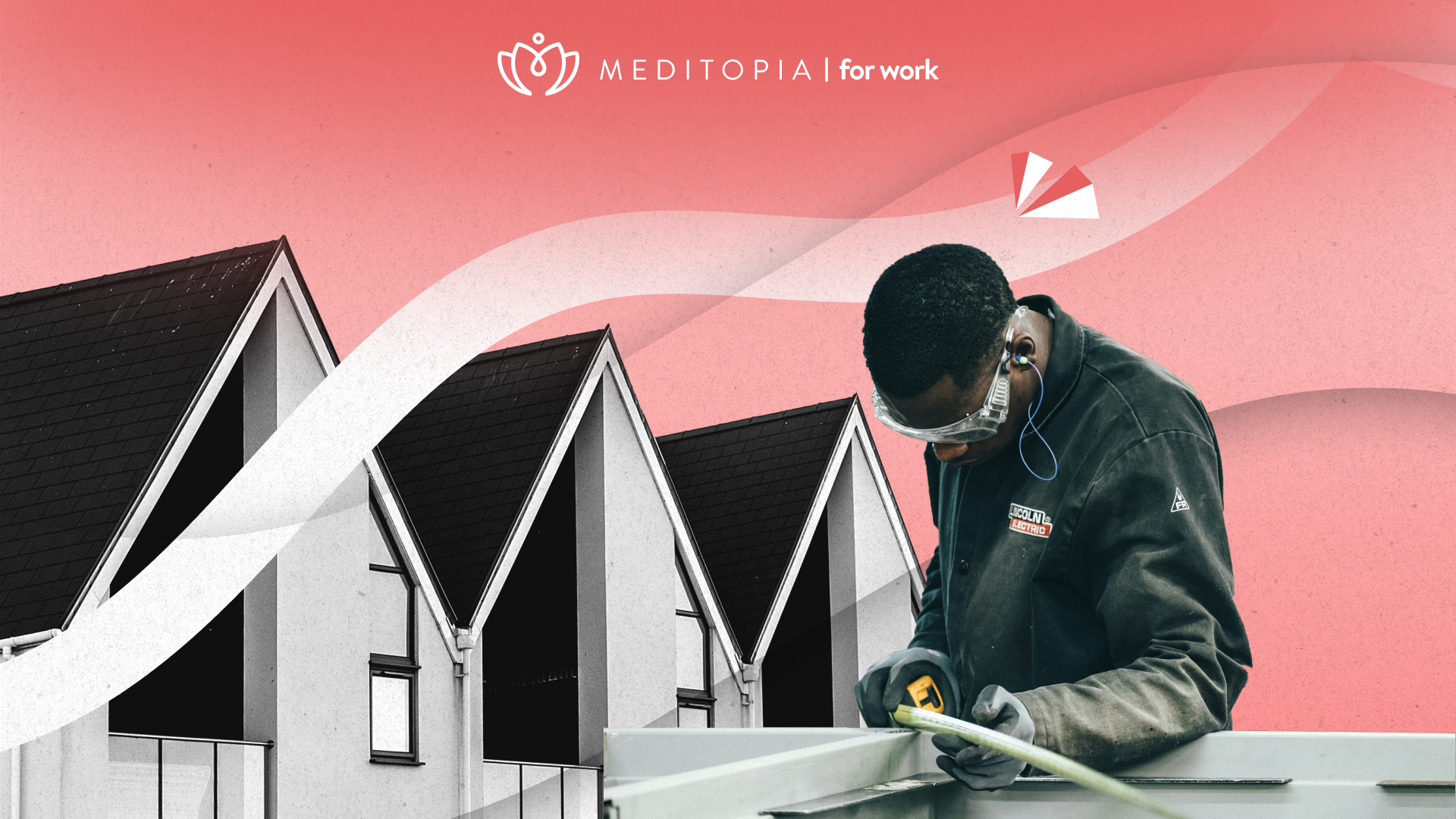Mental health challenges are particularly acute in the industrial workforce; around 8.6% of manufacturing workers report anxiety or insomnia, and stress “always or often” affects 58% of workers’ personal lives [1]. For HR leaders and operational decision-makers, implementing tailored wellness programs is a strategic necessity to improve productivity and reduce risk. This blog will explain why wellness matters in manufacturing and how to approach it with real insight and data-driven guidance.
Why Wellness Matters: Manufacturing Benchmarks
Manufacturing teams face a unique blend of physical strain and mental pressure that directly impacts both employee wellbeing and business performance:
- High mental health burden: About 1 in 12 manufacturing workers suffers from insomnia or anxiety, often exacerbating fatigue and increasing injury risk [2].
- Safety implications: Stress and exhaustion heighten the risk of accidents on the shop floor, with studies showing mental distractions significantly contribute to workplace errors [3].
- Burnout and turnover costs: Generalized research indicates over 52% of employees experience burnout annually, leading to absenteeism, decreased performance, and retention challenges [4].
- Financial ROI: Workplace wellness initiatives deliver a powerful return: every $1 invested can yield $3–$6 in healthcare savings and lower absenteeism costs, and up to 2.5× return in productivity gains [5].
- Organizational climate matters: A strong psychosocial safety climate (PSC), where employees believe their psychological wellbeing is supported, can reduce absenteeism, improve engagement, and cut turnover and injury-related costs significantly.
To learn more about wellness budget ideas, please read our specialized blog.
Common Mental Health & Wellness Challenges in Manufacturing
From floor managers to machine operators, employees regularly navigate a mix of physical strain, time pressure, and mental fatigue, all of which compound when not addressed through dedicated support systems. Here are the most pressing wellness challenges HR professionals should consider:
- Burnout from shift work and production cycles: Long hours, night shifts, and minimal recovery time create chronic fatigue and reduce resilience.
- Low engagement in traditional wellness programs: Deskless environments and lack of access to HR portals hinder participation in standard offerings.
- Workplace fatigue and on-the-job errors: Mental and physical fatigue contributes to slower reaction times and an increased risk of accidents or quality issues.
- High turnover and low morale: Without support systems, even experienced workers are prone to disengagement and job dissatisfaction.
- Mental health stigma: In many manufacturing settings, discussing emotional health is still taboo, limiting the impact of internal EAPs or counseling.
- Limited HR capacity: HR teams are often understaffed or overextended, making it difficult to roll out comprehensive initiatives.
The best manufacturing wellness strategies are designed with mobility, cultural relevance, and shift work in mind, ensuring they align with operational rhythms and workforce demographics.
What an Effective Wellness Program Looks Like in Manufacturing
A successful wellness program for manufacturing workers isn’t just about offering gym discounts or occasional workshops. It’s about embedding wellness into the operational fabric, customized to shift schedules, on-the-go workflows, and the physical demands of the factory floor. Here's what that looks like in action:
- 24/7 Accessibility: Wellness support must be available at all hours to match rotating shifts and overtime demands.
- Mobile-first design: With limited access to desktop devices, programs need to operate seamlessly on smartphones, with offline capabilities when needed.
- Anonymous engagement: To overcome stigma, workers must feel safe to seek help without fear of judgment or exposure.
- Culturally aware and multilingual content: Many teams are diverse and multilingual, so resources must be inclusive and respectful of all backgrounds.
- Peer-led and gamified elements: Engagement improves when wellness is social. Group challenges and team-based wellness scores can make participation feel rewarding.
- Micro-content for recovery: Short breathing exercises, stress check-ins, and quick mobility routines fit into limited break times and reduce physical wear. Micro-content pieces are ideal as wellness resources in manufacturing.
By embracing these features, wellness programs in manufacturing companies become a core strategy to improve morale, reduce injuries, and retain skilled talent in an increasingly competitive labor market.

Example Wellness Program Benefits for Manufacturing
When HR leaders implement wellness programs for manufacturing companies that reflect real on-site demands, the operational impact is both measurable and transformative. But how do these programs look like? Here's how effective, industry-specific wellness initiatives are delivering ROI:
- Reduction in absenteeism: Companies see fewer unplanned absences when wellness solutions proactively address stress and physical exhaustion common in production jobs.
- Enhanced focus and lower incident rates: Workers involved in repetitive or hazardous tasks benefit from tools that support recovery and focus, decreasing the risk of costly errors.
- Higher retention and satisfaction: Tailored wellness programs for manufacturing companies lead to better morale and employee loyalty, which is critical in an industry facing skilled labor shortages.
- Better adaptability to production cycles: With resilience tools in place, employees are better prepared to manage seasonal spikes or overtime demands.
- A stronger workplace culture: Over time, wellness efforts build a foundation for openness, inclusion, and peer support—especially important in traditionally stoic environments.
Manufacturers operating in high-stress roles, such as equipment handling, quality control, or assembly line supervision, face elevated mental and physical strain.
Therefore, burnout prevention is a risk management strategy. A well-structured manufacturing wellness program like Meditopia can directly support your workforce.
How Leading Manufacturing Companies Approach Wellness
Real-world programs from major manufacturers show what works on the factory floor: make access easy (mobile-first/EAP), localize by site and shift, and measure impact. not just intent. Here are some companies that have implemented wellness programs at work:
3M
3M runs a long-standing, site-adapted “Healthy Living” program alongside a decades-old manufacturing ergonomics initiative. The wellness design uses incentives, local coordinators, and integrated EAP access; the ergonomics program targets WMSD risk and line efficiency.
Key points of the program
- Annual health screening/assessment with incentives; local Healthy Living coordinators tailor activities per plant; integrated EAP and coaching options.
- Company-wide ergonomics with participatory methods to reduce risk on production lines.
Results
- 82% biometric screening completion and 87% of eligible employees earned incentives (engagement).
- Ergonomics program linked to reduced injuries and increased productivity/quality/operating efficiency across manufacturing sites [6].
Dow
Dow’s Total Worker Health® strategy combines an OH system with a mobile Well-Being Portal and digital resilience tools, supported by site champions across plants worldwide.
Key points of the program
- Mobile app hub plus “well-being champion” network; integrated digital resilience (meQuilibrium) and 24/7 EAP.
Results
- Year-one adoption: 62.5% of eligible employees enrolled; 25,000+ users.
- Among surveyed app users: 26% reported lower stress, 33% higher productivity, 32% more energy, 68% exercised more.
- Dow reports its best-ever safety performance alongside these efforts [7].
Bosch
Bosch’s global “befit” occupational health management covers preventive care, mental health, and reintegration; in 2023 it ran the first worldwide Mental Health Week across 20+ countries.
Key points of the program
- Central guidelines with local site tailoring; internal OH network and health working groups; global campaign cadence.
Results
- Mental Health Week: 80+ online events and 22,000+ participants globally (engagement signal) [8].
Caterpillar
Caterpillar upgraded its global EAP (60+ countries) to provide 16 no-cost counseling or coaching sessions per covered person per year, with 24/7 digital self-assessment and scheduling, lowering access barriers for a largely blue-collar, shift-based workforce.
Key points of the program
- Confidential, on-demand care (therapy, coaching), medication management in the U.S., plus work-life/legal/financial supports.
Results
- Documented benefit expansion from 6→16 sessions and global coverage to 110,000 employees and families, substantial capacity increase to meet demand [9].
The Future of Wellness in Manufacturing
The manufacturing sector is moving toward technology-enabled wellness that matches the realities of shift work, repetitive tasks, and physically demanding environments.
- AI-driven personalization: Artificial intelligence can tailor wellness content to production cycles, flagging stress or fatigue risks and recommending micro-breaks or sleep tips based on shift data.
- Early deployments in industrial settings show AI coaching can help reduce burnout and improve self-reported resilience [10].
- Wearables for fatigue and safety monitoring: Smartwatches and sensors can track heart rate variability, sleep quality, and hydration, early warning signs of accidents on the factory floor. This is highgly valuable in a high-stress industry.
- Mobile-first wellness apps: With most factory workers away from desks, mobile access is essential. Researchbfound that mobile health interventions significantly reduced stress and improved sleep among shift-based workers, highlighting their effectiveness in manufacturing environments [11].
Together, these tools are reshaping wellness from a reactive benefit into a proactive safety and performance strategy, helping HR leaders in manufacturing reduce incidents, retain skilled talent, and build a healthier workplace culture.
Meditopia for Work: Wellness That Fits the Manufacturing Industry
Meditopia for Work is tailored to meet the demanding conditions of the manufacturing industry, offering wellness solutions that prioritize employee wellbeing and accessible mental health support. Here’s how it aligns with the needs of this workforce:

- Proven outcomes: Workers report a 27% decrease in stress and a 21% increase in positive emotions within eight weeks of use.
- Mobile-first design ensures that manufacturing workers can access tools during shifts, breaks, or off-hours.
- Specialized workshops and webinars address high-impact topics like injury-related stress, emotional fatigue, and shift-based burnout prevention.
- Confidential support includes therapy, meditation, and coaching, available in 14 languages to meet the needs of diverse teams.
- Soul, Meditopia’s AI mental health companion, provides real-time emotional support for workers facing stress during production or remote tasks.
- Bite-sized wellness content helps combat on-the-job fatigue with guided breathing, emotional check-ins, and self-care tools designed for physical labor.
- 24/7 availability ensures support is always accessible, no matter the shift pattern or schedule rotation.
- Anonymous usage and auto-onboarding lower access barriers, particularly important in environments with limited HR capacity.
- Expert access includes therapists, personal coaches, trainers, nutritionists, and even financial advisors.
By integrating Meditopia into their operations, manufacturing companies can foster a culture that supports both mental health support and employee wellbeing, send us a message and let's improve your team's wellbeing together!
Explore Employee Wellness Programs Across Industries
The way companies care for their employees differs across sectors. Check out how wellness programs adapt to unique demands and where new practices are taking root.

























